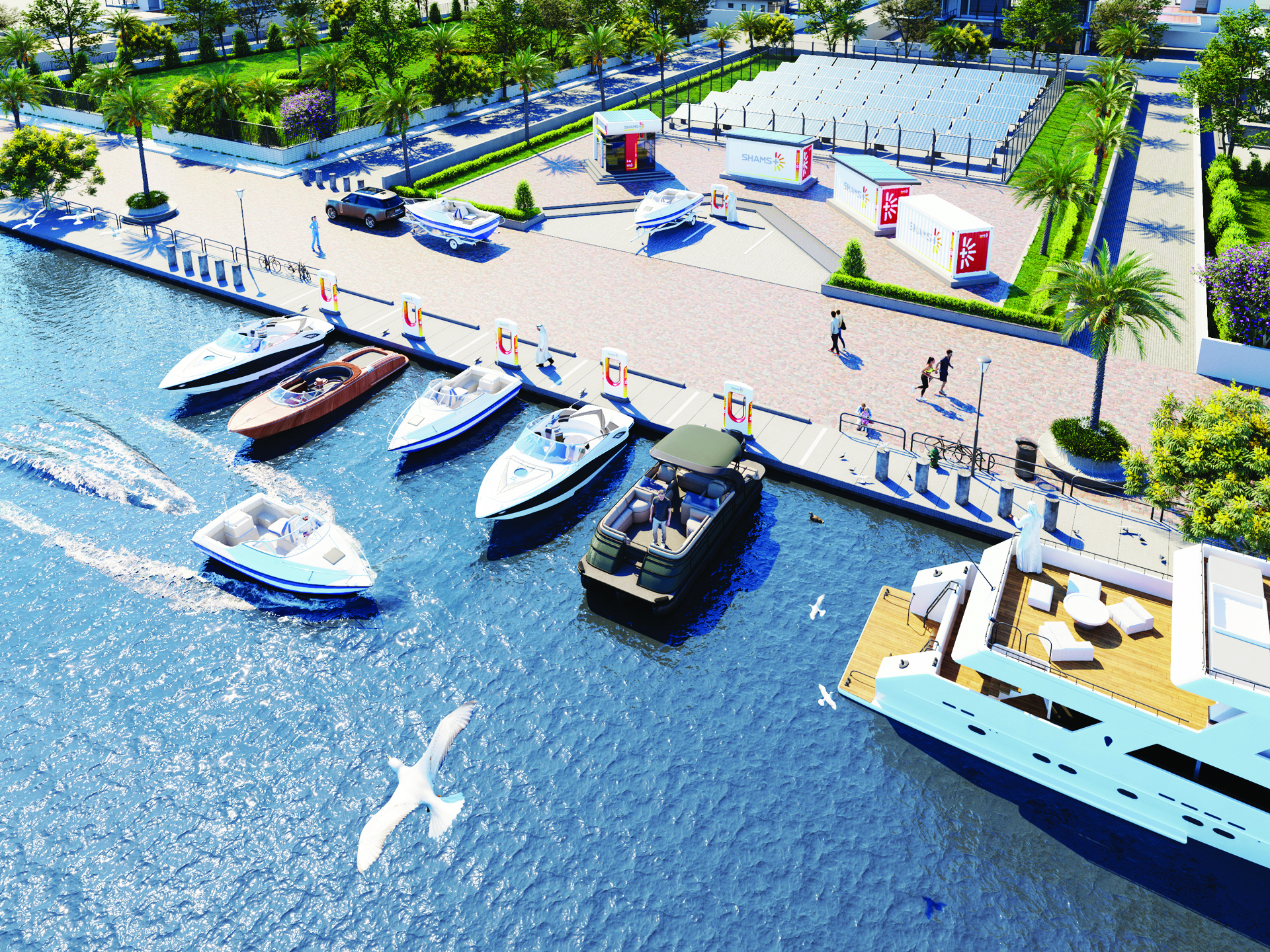Governments across the region are accelerating development of electric vehicle (EV) technology, with the UAE aiming to become carbon neutral by 2050 and recently ranked eighth globally in terms of readiness for electric mobility. Al Masaood, being a national entity focused on both the industrial and automotive advancement of the country, decided to look into this opportunity and see what brand proposition we can birth.
Do you want to be a part of the most anticipated and controversial Breakfast Briefing of the year? Join Campaign Breakfast Briefing: Out of Home as we take a deep dive into the most pressing topics in out-of-home advertising. From measurement and digitisation insights and debate to networking with prominent players in the industry, we have it all. Book your seat now.
How it all started
The clean energy transition encompasses different angles. It includes, but is not limited to, renewable energy and automotive transformation. One of the major opportunities in both is solar power – and our region is not short of that.
Transport is a massive contributor to global warming, with the sector accounting for about 16 per cent of global greenhouse gas emissions. A key element of the clean energy transition will be to enable electrification. As more EVs are planned to hit the road in the UAE, Al Masaood’s power division has found a prime opportunity to evolve its product mix to more eco-friendly power generation.
We identified the gap between the demand for clean electric power against the current supply of charging infrastructure, and decided to launch our very own solution. This May, we proudly launched the UAE’s first solar charging system for EVs and hybrid marine vessels. After much thought, we named our system SHAMS+. The concept is simple yet powerful, using solar energy to generate clean power for multiple sectors including agriculture and marine transport.
Creating the brand
The name SHAMS+ comes from the Arabic word for ‘sun’ to reflect the solar powered aspect of the system, which differentiates it from other conventional EV charging stations. The plus symbol represents the brand’s vast offering and opportunities in the smart charging industry.
The SHAMS+ logo design signifies a modern, state-of-the-art tech-driven energy provider. The icon is based on the radiating rays of the sun with the red-yellow colour gradient generating a feeling of accumulating energy and recharging. To add convenience to the mix, a comfortable waiting area has been added in the design to let the users enjoy a hassle-free experience and relax while their vehicles are charging.
Our proposition: hi-tech and harmless
SHAMS+ is Al Masaood’s contribution to electrification and green mobility as the future of transportation in the UAE. This smart, internet-based and mobile venture is an ultra-fast charging solution with highest charging speed starting from 25 minutes. Driven by the need of our greatest stakeholder, our beloved Earth, we are now changing our product mix to embrace sustainability.
Sustainability, the next chapter of branding
It is crystal clear that sustainability is now an opportunity for every brand – and thus every marketer. But with the whirlwind of changes happening in the market and the world at large, where does this leave marketers?
Marketers now find themselves with new dimensions added to their roles. As agents of change, they have the dual responsibility of weaving sustainability into brands’ corporate strategies and value propositions and taking the lead on the implementation of those efforts. They also shoulder the responsibility of driving changed behaviours and demand for sustainable and responsible purchases on the customer/consumer side.
That being said, it is time for marketers to revisit their 4Ps – product, price, place and promotion – and integrate another P – the planet – to their marketing spectrum, in order to scale a positive impact, differentiate their brands, and strengthen brand equity.
Long-standing and newly founded businesses, private, public or a mix of both, have no choice but to do that, and marketers must play their part in the game.
On the consumer/customer side, scrutiny of business operations versus sustainability will only gain traction as the effects of climate change become more prevalent, especially as customers keep getting younger.
Here lies a marketer’s responsibility to build a mental association between the brand and customers’ responsible consumption. They need to work on fuelling changed behaviours – so customers close the ‘say-do’ gap when it comes to spending their money on responsible purchases that have a positive wider effect.
A brand can then be seen to be playing a role in effecting societal change and can thereby earn respect and enhanced brand image and reputation. The ‘brand purpose’ for companies represents the meaning behind its existence, a view of how it wants to be perceived.
As in the case of SHAMS+, Al Masaood Power has made sustainability a central pillar in its way forward. As marketers it is now on us to support such corporate efforts gain traction in the market and dwarf out the obstacles perceived by consumers in adopting the green way forward – for the greater good of all.












